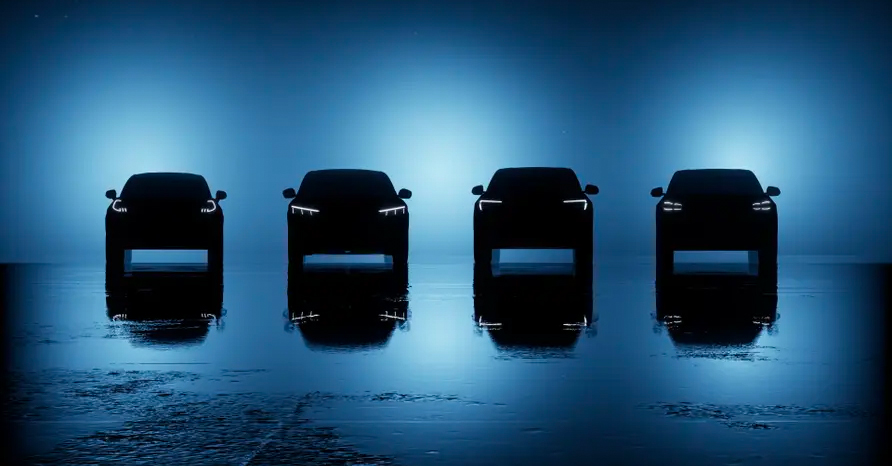
The Ford Motor Company is changing its operation, and this is what it'll look like
No longer is Ford the company with a car for us all. We now have more visibility of its pivot into a much more specialised operation. Ford now wants to sell you an image of great American freedom, mostly in the form of trucks and SUVs. There will be two poles Ford says: sporty, and adventure.
Sporty? The new seventh-generation Mustang, and Mustang Mach-E. Plus, they promise, the electric five-door "sport-crossover" coupe based on the VW group platform – think Audi Q4 Sportback – due late next year.
On the 'adventure' side, we'll get the new Explorer, which is also a spinoff of the VW platform. The Bronco will come to Europe, but only as left-hand-drive for the foreseeable future. RHD might just come when, or if, they do an electric Bronco.
The Ranger Raptor, in its big-dog fashion, wants to be at the pinnacle of both adventure and sporty. Ford also launched the electric F-150 Lightning pickup in Norway and the first allocation - OK a very small number - sold out in days.
There will also be an electric version of the Puma from 2024. Call it sporty if you must. It'll soon be time for a facelift of the PHEV Kuga, which we gather will get a more robust look, nudging it ever-so-slightly toward the adventure half of the spectrum.
So, no more Fiesta now, no more Focus and Ecosport. Already we've seen the euthanising of the Mondeo, Edge and MPVs. Why can't Ford do what VW, Toyota, Hyundai, Peugeot and so many others do – make a full range of cars at a profit? Why is Ford admitting defeat and abandoning those loyal customers?
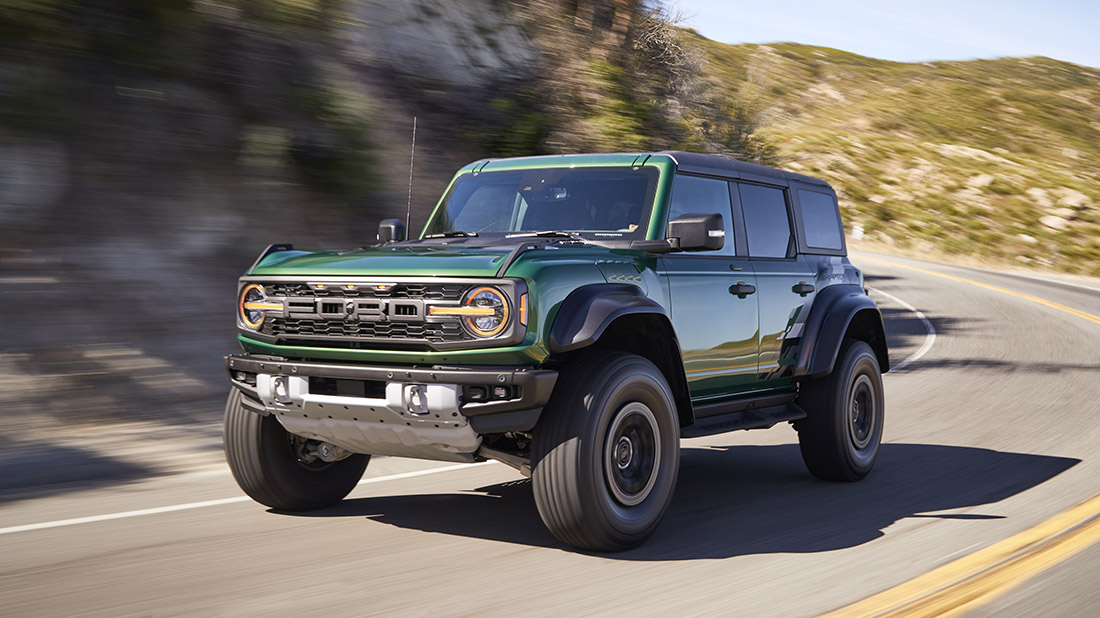
I put the questions to Martin Sander, boss of Ford's 'Model E' electric cars division in Europe. "We are convinced that there's much more room for us to build on the strength of the Ford brand, on our roots as an American company that builds iconic products, with emotional appeal. Not just a vehicle in each and every segment."
Which is a positive way to look at it. But that's not why they killed the Fiesta and Focus. It's because they have been incapable of making money on these things where rivals can. Why not? "The reality is we don't have the scale of Volkswagen Group with five brands or Stellantis with I don't know how many brands. So we have a cost disadvantage.
"But that's not a problem if we go into different segments. The Puma is extremely successful. Great sales. Customers love it. Profitable for us. Kuga, another example."
He leans heavily on what he calls Ford's calls iconic names – Mustang, Explorer, Puma, all of them repositioned as EVs for the new age. Wonder if it'd be too capri-cious (er, geddit?) to do the same for that 2024 coupe-SUV.
So the entry car will be a van with windows, the Tourneo Courier. However much Ford people call it 'car-like' there seems little reason it'll sell better than rivals from France. Except that unlike the Citroen Berlingo and Peugeot Rifter it'll be available as a petrol as well as electric for the time being. Besides, a mass-selling car surely needs a catchy name. Which Ford E-Tourneo Courier isn't.
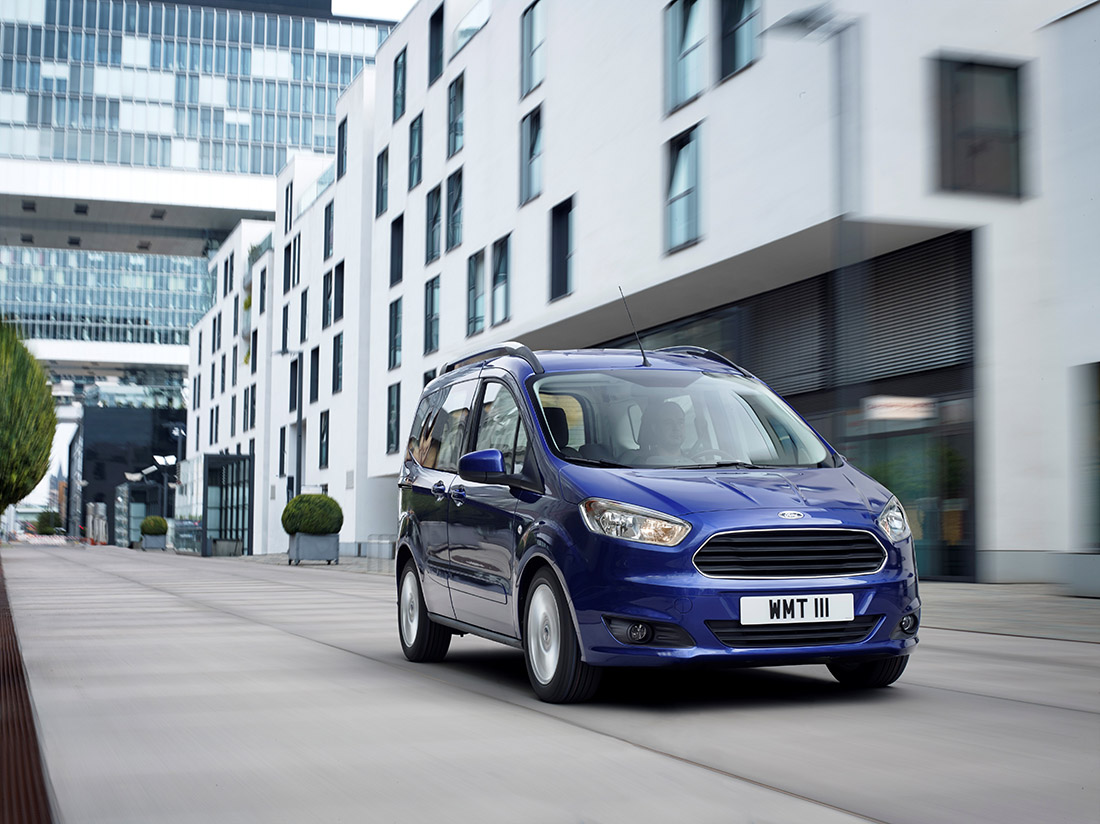
If you don't see the Tourneo Courier as stepping in for the Fiesta, maybe it's more plausible that some Focus owners will migrate into the Puma and its coming electric version. It's a surprisingly practical car that's cheerier to drive than most crossovers. If less cheery than a Focus.
Why should we think this rebranding of Ford will work when on so many previous occasions it has tried and failed to reposition itself? Sander answers: "What we're doing is so obvious and sometimes it takes time to find the obvious. We are an American iconic company. America is the country of freedom and can-do. This is such an emotional and positive space. So why not build a business and brand in Europe on the basis of this true Ford DNA? It's a fundamental shift in the way we are positioning our company."
He also points out that when people buy their first electric car, it often goes with a switch in brand. Four out of five Mustang Mach-E buyers are new to Ford.
Of course there's another fundamental shift. Ford is planning on making more money while selling fewer cars. This week it officially re-opens its factory in Cologne, Germany to build electric cars based on the VW ID platform. That plant can build no more than 250,000 a year of the Explorer and coupe-crossover. In 2019 the Focus and Fiesta did nearly double that number in Europe alone.
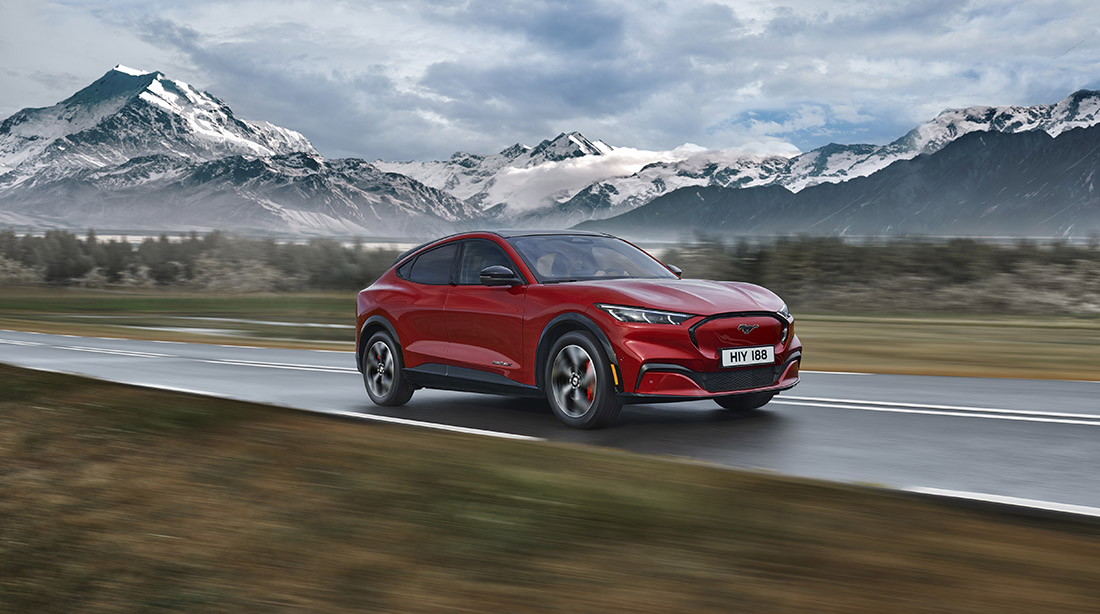
The motor and batteries of the Cologne-assembled Fords come from VW's factories, and the basic vehicle platform too. Ford has already announced factory closures, and it's likely the Saarlouis plant, home to the Focus, will be sold to a Chinese maker in 2025. Ford won't need as many engineers, especially as two of those cars are based on a VW platform. Fewer cars means fewer dealers, too. We hear the UK network will be slashed.
But for some of the dealers, and for Ford shareholders, there's another factor. Vans. Ford makes huge profits from its huge sales of Transit Couriers, Transit Connects, Transit Customs and, er, Transits. Plus the Ranger. So far this year the Transit Custom (the thing we all think of as the Transit) is neck-and-neck with the Puma as Britain's best-selling vehicle.
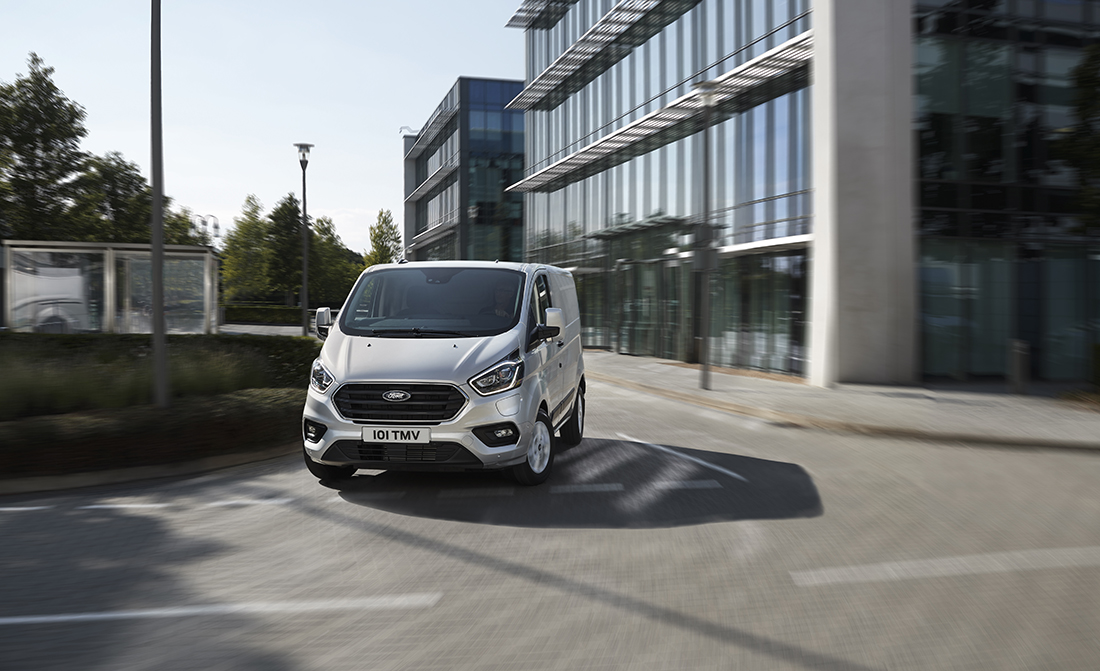
Ford has immense power in its connected-data systems for van users, keeping them on the road for the most time at the lowest cost. It's a definite USP.
Ford does have expertise in software. The first certified hands-off assisted car in Britain – indeed in Europe – isn't a Tesla or a Mercedes. It's the Ford Mustang Mach-E with BlueCruise. This is a subscription feature, and all the cars already on the road can be updated over the air.
But the Explorer won't get this for the moment because the Explorer uses VW's software stack. These days plonking a Ford physical design on a VW chassis doesn't make a true Ford. Proper own-brand software is vital too. The presence of VW software in the Explorer is another reason Ford's hesitancy in investing in cars for Europe might come back to bite it.
TEXT Paul Horrell

